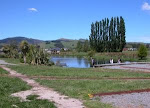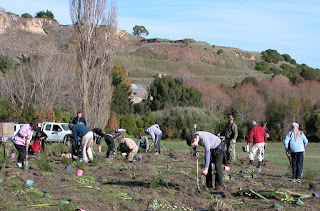Thanks to Deb Harding-Browne of No Boundaries Furniture for this article
Minimalism has become very popular and it has been influencing our
lifestyle trends for some time. It can be seen in new housing developments that
offer home decor in white, grey and black or soft natural monotones and in simplified
landscaping with a lot of stones and pavings and textured plants, and in our
city’s furniture stores. It is interesting to look at why our people are
embracing this style.
People often believe minimalism comes directly from Buddhist
and Feng Shui teachings, but actually, many other historical figures lived
simply as a means to an end. Socrates was a minimalist as was Jesus Christ,
John the Baptist, Paul the Apostle, St Francis of Assisi and all those who
lived in monasteries and convents. More recently, famous minimalists include
Henry David Thoreau, Gandhi, Albert Einstein, Mother Teresa, and Steve Jobs.
In modern times, the sixties hippies called for simplicity,
however, this was followed by a blow out in greed in the eighties and nineties
that has cost the next generation. It is our young that are developing a much
stronger moral conscience about the planet in light of what has happened before
them.
In marches the minimalist trend, as an antidote to
consumerism and a wonderful way to take a stand against huge corporations.
Hundreds of blogs have been started solely devoted to helping us to simplify
our lives and the best of them have millions of readers. Usually, the blogs
contain a central theme such as financial freedom, healthy habits,
volunteering, tiny homes, travel, or home management. And while the philosophy
has many forms, proponents more or less agree on the benefits as they are
fairly logical cause and effect relationship.
LESS STUFF MEANS…
1. Less cleaning.
Less stuff means less stuff to clean and organize and then cleaning itself is
easier because you don’t have to lift things before you clean.
2. Fewer decisions.
There are endless applications for this, but one example is if you reduce your
wardrobe size, you will have means less outfits to choose from. This is an
argument for uniform but many voluntarily simplify their wardrobes; Barack
Obama wore the same blue or grey jacket every day while in office and Mark
Zuckerberg wears a simple grey t-shirt.
3. Less waste.
Again, this has applications in most areas of our lives. Let’s take cooking for
example. Cooking simpler recipes alone means cutting back on the number of
ingredients that need to be bought which means there is a smaller grocery bill
and less packaging to be thrown out.
4. Less tidying. Some home managers
with children will testify to the fact that they just seem to be putting things
away all day which is a frustrating way to spend our lives. Less stuff means
less tidying and more time for going to the park, the bush or the beach.
5. Fewer distractions. Less choices
in what to do means we can focus on our priorities with less temptations.
Minimalists advocate doing one thing at a time because constant considerations
leads to restlessness and anxiousness.
6. More focus. Many simple life
experts suggest picking three major goals instead of many. Others say no more
than two projects at a time. Simplifying goals leads to efficiency and
streamlines your life to achieve them more quickly.
7. More savings. American
minimalists have often begun their journey because of financial problems where
credit card debt got out of control and then they begin to figure out methods
to help them get ahead. Once debt is cleared, the same methods are used to save
money, which in turn buys freedom.
8. More room. There is the obvious
physical component of having less frustration because there is less stuff in
our environment to work around but also in a scheduling sense we have more room
for leisure.
9. More charity.
As we begin to declutter and discover what is a new level of ‘enough’ we begin
to think about those around us who don’t have enough. Our hearts become softer
and we are kinder and more disposed to helping those with less. Furthermore, as
we are not focused on purely material goals as much we will begin to think
about what we can do to help our society more.
10. More peace.
With fewer distractions and a less cluttered schedule, we have the energy and
efficiency to build a life that allows us more time for rest and solitude
creating inner harmony, balance and peace. And as we consider those around us
more, we have more peace as a result of a clearer conscience that comes from
living a life of purpose.
As they say, minimalism is for the elite; for people who
live in countries that have their material needs and greeds met. However, it is
our greed that is making us sick and unhappy.
Last year, a guest speaker from
India came to speak in Christchurch. She was very grateful for the work a group
of Christchurch families are doing in Kolkata, one of the poorest spots in the
world. Looking out to the audience, she said “We don’t have much as you, but do
you know what we have that you don’t? We have COMMUNITY.” While here, she was
witnessing our walled in housing subdivisions and our elderly residential homes
and impersonal shopping malls and sensed with a compassionate burden what we
are lacking.


